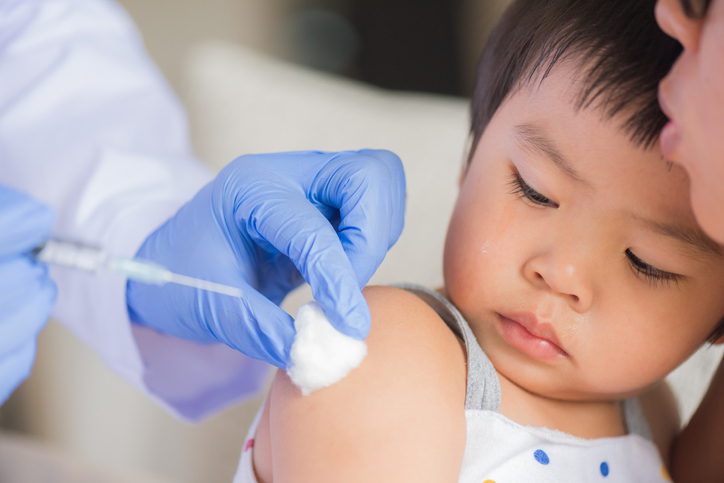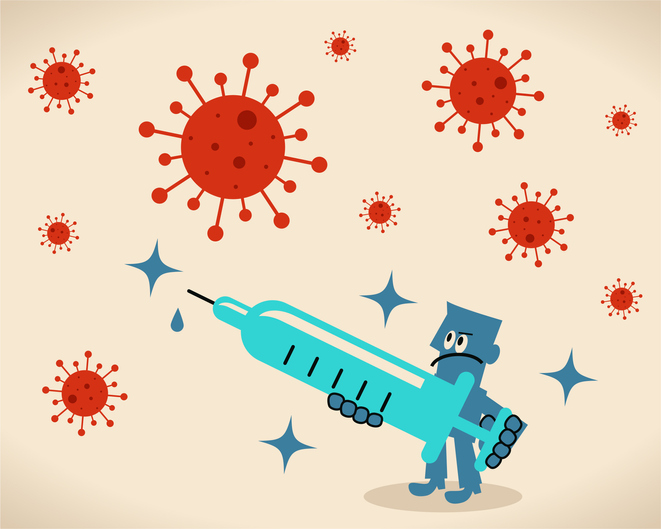In this last week of April 2019, Malaysia is among 180 countries and territories worldwide who come together in unity for World Immunization Week (WIW) 2019. As one of the eight official campaigns marked by the World Health Organization (WHO), WIW serves as a powerful global health platform to raise awareness and encourage people everywhere to protect themselves and their families against vaccine-preventable diseases.
We speak with Dr Loo Chee Yean, Consultant Physician and Nephrologist, Sri Kota Specialist Medical Centre (Sri Kota), Klang, to provide you some facts on how immunization is essential to living a healthier, longer, better live for yourself, your loved ones and your community. Sri Kota is one of AIA’s partner hospitals.
WHY VACCINATION MATTERS

At all ages, vaccines save lives. They protect our children, and they protect us all as adults. As Dr Loo puts it, immunization through vaccination is important to protect each of us from serious illness and complications of certain diseases which can be prevented by vaccine (‘vaccine-preventable diseases’), such as measles, mumps, whooping cough, influenza, pneumococcal disease, hepatitis B, yellow fever, and so on.
Without vaccination, one can suffer from paralysis of the limbs, hearing loss, brain damage and even death. Which is why, vaccination is one of the most critical and non-optional medical treatment that every person – regardless of age, should obtain. WHO lists vaccination hesitancy – the reluctance or refusal to vaccinate despite the availability of vaccines – as one of the top 10 threats to global health in 2019. A thought-provoking comparison is that every year, approximately more adults in USA die from vaccine-preventable diseases, than from motor traffic accidents.1
However, have you ever noticed a difference in preference when it comes to the temperature of water you drink? Do you prefer cold or warm water? Is there a difference? Is one better than the other? Well, let’s find out.

As WHO states, immunization saves millions of lives every year and it is widely recognised as one of the world’s most successful and cost-effective health interventions. Through immunization, 37 countries and territories within the Western Pacific Region2 are free of wild polio. Maternal and neonatal tetanus have been eliminated in all but one country. Measles has been eliminated in nine countries and rubella in five, while 19 countries have been verified as having new generations free from hepatitis B. Overall, mortality from vaccine-preventable diseases has gone down 80 per cent since 2000.
KEEP VACCINATION CURRENT
As Malaysians, we all remember receiving a vaccination injection at one time or another to immunise ourselves against a particular disease. As a responsible Malaysian, we should ensure we are up-to-date with vaccinations for all possible vaccine-preventable diseases, and that we extend this critical reminder to our loved ones, friends and community members. When there is a gap in immunization coverage, this puts everyone at risk with ominous results. For example, Malaysia saw a surge in the number of measle cases from 68 in 2010, to a staggering 1,378 cases in 2011 through an immunization coverage gap in children3.
While WHO records global vaccination coverage – the proportion of the world’s children who receive recommended vaccines – at around 85 per cent, yet there are still nearly 20 million unvaccinated and under-vaccinated children in the world today. Many are in territories which do not have access to vaccinations, or due to parents who do not consent to having their children vaccinated.

Malaysia is fortunate in that it has surpassed the global coverage level. Through concerted and consistent efforts, Malaysia’s vaccination level has steadily increased from 75 per cent in 1990, to 81 per cent in 2007, to achieve a current level of 95 per cent4. Presently, the Malaysia Health Ministry has enforced a mandatory vaccine programme administered to children under 15 years in public schools.
DEBUNKING MYTHS
Unfortunately, there are pockets of people around the world, and also in Malaysia, who fear or distrust vaccines, due to misperceptions or misinformation through social media. To lay some concerns to rest, Dr Loo provides the following facts on vaccines.
-
- Vaccination is very safe. They do not contain any harmful ingredients. Thorough research and development, safety trials and checks are done over years before any vaccine is made available to be administered to the public.

- Vaccine does not cause autism or Sudden Infant Death Syndrome (SID). There is no evidence to link vaccines as the cause of autism or SIDS. A recent major study conducted among 650,000 Danish children has again confirmed that there is no link between the measles-mumps-rubella (MMR) vaccine and autism5. The 1998 study that raised the concerns about a possible link between MMR vaccine and autism was retracted by the journal that published it because it was significantly flawed by bad science.
- Children do not get diseases from the vaccines. Most vaccines are inactivated (killed) or inactivated vaccines and it is not possible to contract the disease from the vaccine.
- It is not better to have the disease, than to be immune (to the disease) through vaccines as vaccine-preventable diseases have many serious complications that can be avoided through immunization. For example, about 226,000 people are hospitalised from influenza complications, and about 36,000 people die from influenza each year. Vaccines stimulates the immune system to produce an immune response resampling the natural infection in a safe way.
- Each person, child or adult, must have their individual vaccinations. Travellers can unknowingly bring these diseases into any country, and if you and your community are not protected by vaccinations, these diseases could quickly spread throughout the population, causing epidemics.
- All vaccines administered by government hospitals in Malaysia are halal. This is supported by the National Fatwa Council6.

WHAT YOU CAN DO
Vaccines means lives lived. They mean a brighter future for each of us, our children and theirs to come. So, do ensure you and your loved ones are vaccinated on time, every time. If you are travelling, ensure yours and your family’s vaccines are up to date. You can also be a vaccine champion and join the conversation (#vaccineswork) to spread the awareness and understanding among your friends, colleagues and community.
For more information, log on to https://www.who.int/campaigns/world-immunization-week/world-immunization-week-2019
Reference :
1 “Vaccines…Not Just for Children Anymore”, National Foundation for Infectious Diseases (NFID), http://www.adultvaccination.org/newsroom/adult-vaccine-feature.pdf
2 Western Pacific Region covers a wide mix of countries in the Pacific, Oceania and parts of Asia. It stretches over a vast area, from China and Mongolia in the north, to New Zealand in the south.
3 https://immunise4life.my/diseases/the-mmr-vaccine-3/
4 UNICEF report on Malaysia’s vaccination achievement based on children who received their full course of three dose diphtheria-tetanus-pertussis (DTP3) routine immunizations, https://data.unicef.org/wp-content/uploads/country_profiles/Malaysia/immunization_country_profiles/immunization_mys.pdf
5 “No link between autism and MMR, affirms major study”, The Guardian, 4 March 2019 https://www.theguardian.com/society/2019/mar/04/no-link-between-autism-and-mmr-affirms-major-study
6 “Health Ministry: Vaccines in public hospitals guaranteed to be halal”, The Star, 17 March 2018 https://www.thestar.com.my/news/nation/2018/03/17/vaccines-in-public-hospitals-guaranteed-to-be-halal/
The above articles are intended for informational purposes only. AIA accepts no responsibility for loss, which may arise from reliance on information contained in the articles.


Recent Comments